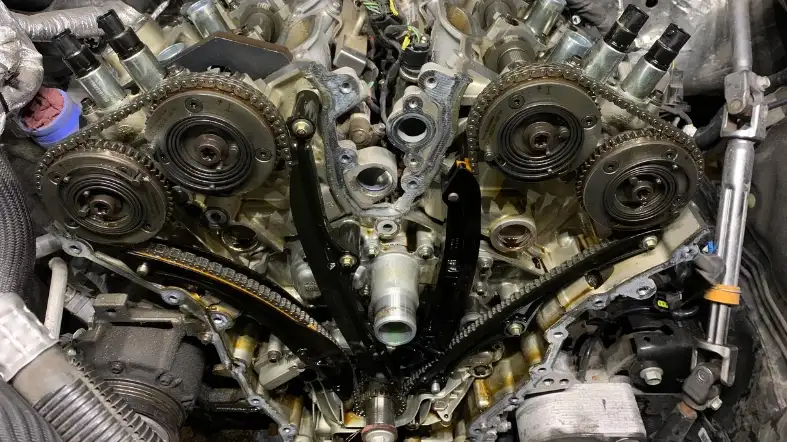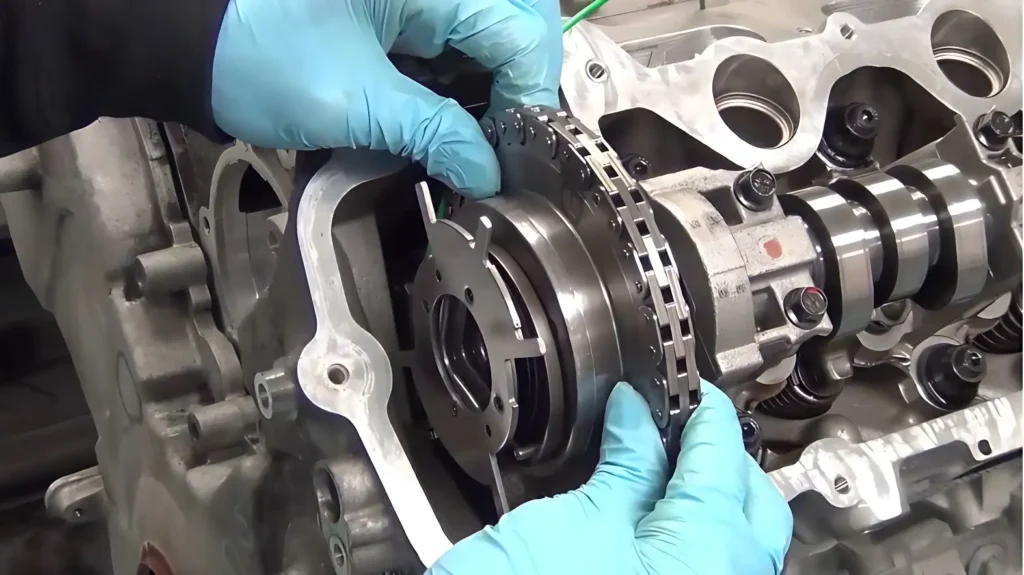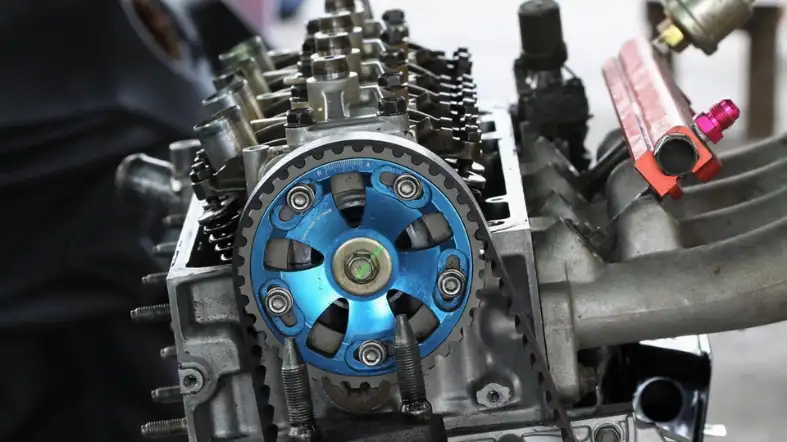If you’re driving a vehicle equipped with cam phasers, you might be wondering if these components are covered under your car’s warranty.
The answer to whether cam phasers are covered under warranty depends on your specific car, the make, model, and year, and the type of warranty you have.
In this blog post, we’ll explore whether cam phasers are covered under warranty, what causes them to fail, and how to know if you need to replace them.

Are cam phasers covered under warranty?
In most cases, if you have a manufacturer’s warranty or extended warranty, cam phasers may be covered under certain conditions. Generally, powertrain warranties cover engine and transmission components, which may include cam phasers.
However, if the cam phasers fail due to neglect or lack of maintenance, the warranty may not cover the repair or replacement costs.
Additionally, if your car is no longer under warranty or you have a third-party warranty, the coverage may differ.
How can I determine if my cam phasers are covered under warranty?
To determine if your cam phasers are covered under warranty, you can take the following steps:
Review your vehicle warranty documents:
Look for the sections outlining what parts and components are covered under your warranty.
Check the duration and mileage limits for coverage. If you can’t find the information you need, contact the manufacturer or dealer.
Contact the manufacturer or dealer:
Call or email the manufacturer or dealer and ask if cam phasers are covered under your warranty.
If cam phasers are covered, ask about the specific terms of the coverage, such as the duration and mileage limits.
If cam phasers are not covered, ask if there are any options available for coverage, such as an extended warranty.
Review third-party warranty documents:
If you have a third-party warranty, carefully review the terms and conditions to determine if cam phasers are included in the coverage.
Pay attention to any exclusions or limitations that may apply. If you’re not sure if cam phasers are covered, contact the third-party warranty provider for clarification.
Consider the age and mileage of your vehicle:
If your vehicle is older or has high mileage, your warranty coverage may have expired or may be limited.
In this case, you may need to cover the cost of repairs or replacement out of pocket.
Factor in the cost of repairs:
Even if your warranty covers cam phaser repairs, you may still be responsible for some costs, such as deductibles or diagnostic fees.
Make sure to get a clear understanding of any out-of-pocket costs before proceeding with repairs.
Consider seeking a second opinion:
If you’re unsure whether your cam phasers need to be repaired or replaced, consider getting a second opinion from another mechanic or repair shop.
This can help you avoid unnecessary repairs and ensure that you’re getting a fair price for any necessary work.
Keep up with regular maintenance:
While cam phaser problems can occur even with proper maintenance, keeping up with regular oil changes and other recommended maintenance tasks can help prevent premature wear and tear on your engine components, including the cam phasers.
Be Aware Of The Warning Signs:
If you experience warning signs such as engine noise, reduced power or fuel efficiency, or rough idling, these may be symptoms of cam phaser problems.
Addressing these issues promptly can help prevent more serious engine damage.
Consider working with a reputable repair shop:
Whether or not your cam phasers are covered under warranty, it’s important to work with a reputable repair shop that uses quality parts and offers fair pricing.
Look for reviews and ask for referrals to find a shop that you can trust.
What if my cam phasers are not covered under warranty?

If your cam phasers are not covered under warranty, there are several options available to you:
Pay for repairs out of pocket:
Get an estimate from a reputable mechanic or repair shop for the cost of the cam phaser repairs.
Compare prices from different shops to find the best value.
Set aside funds specifically for the repairs to avoid unexpected financial strain.
Consider an extended warranty:
Research and compare extended warranty options from reputable providers.
Carefully review the terms and conditions of the warranty before purchasing to ensure that cam phasers are covered and that the coverage is sufficient for your needs.
Be aware of any deductibles or other fees that may apply.
File a claim with your insurance company:
Contact your insurance company and ask if cam phaser repairs are covered under your policy.
If they are, file a claim and follow the company’s procedures for getting the repairs done.
Be aware that filing a claim may increase your insurance premiums.
Negotiate with the repair shop:
Get multiple quotes from different repair shops to compare prices.
Ask the repair shop if they offer any discounts or payment plans.
If the repair shop is unable to lower the price, consider asking for a breakdown of the costs or for a payment plan to spread out the expenses.
Consider aftermarket or used parts:
Research and purchase aftermarket or used cam phasers from a reputable source.
Make sure the parts are compatible with your vehicle and have them installed by a qualified mechanic.
Be aware that using non-OEM parts may void any remaining warranty on your vehicle.
Can I prevent cam phaser issues?

While cam phaser issues can occur for a variety of reasons, there are some steps you can take to potentially prevent or reduce the likelihood of these issues:
Regular Maintenance:
Follow the recommended maintenance schedule for your vehicle to keep it in good condition.
Regularly check your oil level and quality, as low or poor-quality oil can cause damage to the cam phasers.
Replace your oil and oil filter at the recommended intervals to keep your engine and cam phasers lubricated.
Use High-Quality Oil:
Use oil that meets the manufacturer’s specifications and is of high quality.
Choose the oil that is designed to prevent sludge buildup and promote good engine lubrication.
Consider using synthetic oil, which can provide better performance and protection for your engine and cam phasers.
Be Gentle on Your Vehicle:
Avoid hard acceleration, sudden stops, and abrupt shifts, which can put stress on your engine and cam phasers.
Drive your vehicle smoothly and avoid excessive idling, which can cause unnecessary wear on the cam phasers.
Listen for Warning Signs:
Pay attention to any unusual engine noises, such as knocking or ticking sounds, which may be a sign of cam phaser issues.
If you notice any changes in engine performance or fuel economy, get your vehicle inspected by a qualified mechanic.
Address Issues Promptly:
If you suspect there may be an issue with your cam phasers, take your vehicle to a qualified mechanic for diagnosis and repairs as soon as possible.
Delaying repairs can lead to more serious and costly problems down the line.
FAQs
Are Cam Phasers Typically Covered Under A New Car Warranty?
Yes, cam phasers are typically covered under a new car warranty, which is provided by the manufacturer of the vehicle.
What About Extended Warranties Or Service Contracts?
The coverage for cam phasers under extended warranties or service contracts may vary depending on the terms and conditions of the contract.
What Are Some Common Signs Of Cam Phaser Issues?
Some common signs of cam phaser issues include a rough engine idle, decreased engine performance, knocking or ticking noises from the engine, and decreased fuel economy.
What Can Cause Cam Phaser Issues?
Cam phaser issues can be caused by a variety of factors, including low oil pressure, poor quality oil, sludge buildup, and normal wear and tear over time.
How Can I Determine If My Cam Phaser Issues Are Covered Under Warranty?
You can check the terms and conditions of your vehicle’s warranty to see if cam phaser issues are covered.
You can also contact your vehicle’s manufacturer or dealership for more information.
What If My Cam Phasers Are Not Covered Under Warranty?
If your cam phasers are not covered under warranty, you may need to pay for repairs out of pocket.
Be sure to get a quote from a qualified mechanic and weigh the cost of repairs against the cost of a replacement vehicle.
Can I Prevent Cam Phaser Issues?
While cam phaser issues can occur for a variety of reasons, there are steps you can take to potentially prevent or reduce the likelihood of these issues.
See the previous answer for more information on preventing cam phaser issues.
Conclusion
Whether or not cam phasers are covered under warranty depends on various factors, such as the age and mileage of your vehicle, the type of warranty you have, and the specific terms and conditions outlined in your warranty contract.
It’s always best to check with your manufacturer or dealership to determine if your cam phasers are covered.
If they are not covered, you may need to consider other options for repairs, such as purchasing an extended warranty or paying for repairs out of pocket.
Taking preventative measures, such as regular maintenance and careful driving, can also help reduce the likelihood of cam phaser issues.
